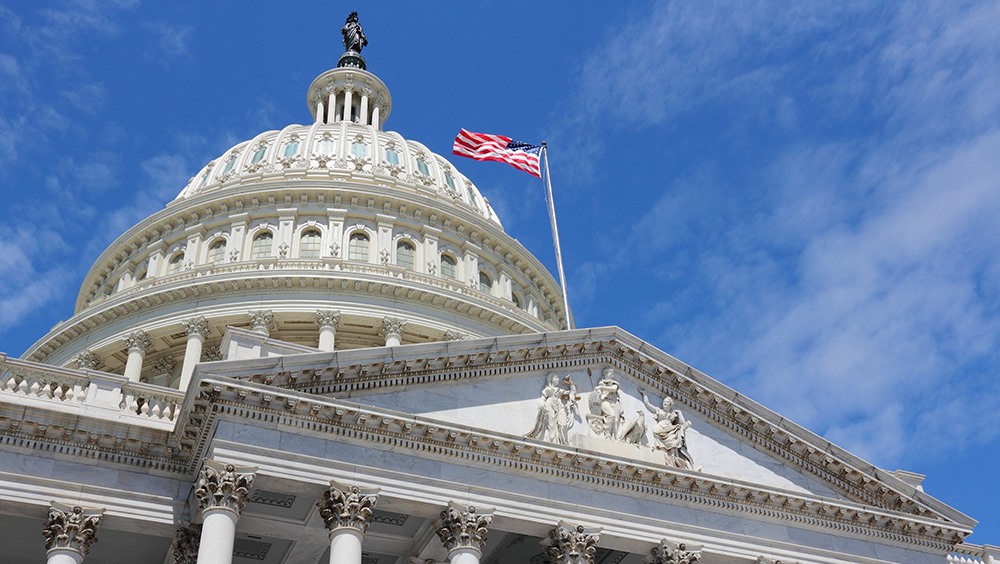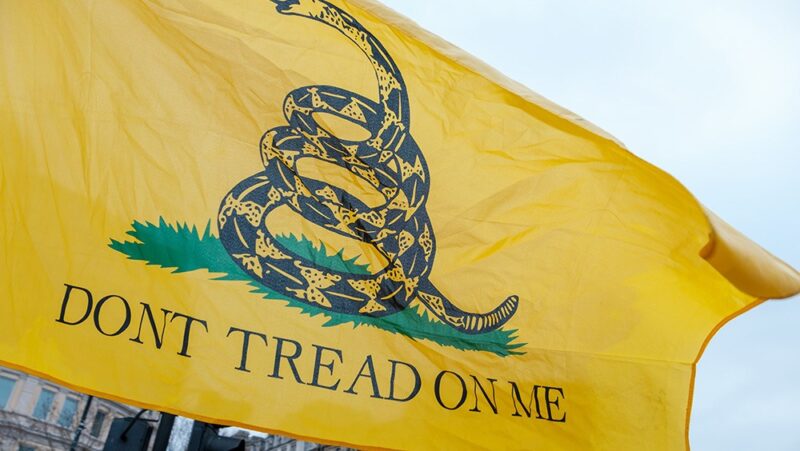Five Freedoms, One Democracy

The First Amendment sets out not just five core American freedoms but also provides a pathway for each generation to face the challenges of a free society.
The amendment’s 45 words define the fundamental nature of our nation, protect us from undue government interference or control, and empower each one of us to be full partners in self-governance.
Five inseparable freedoms
Often, its five freedoms – religion, speech, press, assembly and petition – are considered independently, as challenges and issues arise around each one.
But to fully appreciate the First Amendment, we should consider these freedoms as a constructed set, each element with distinct value but gaining full strength and meaning as an inseparable element of our national identity.
Freedom of religion
History establishes that religious liberty – for all faiths, not just for the majority or for those in power – was a driving force for the nation’s founders. This right was seen by some founders as “freedom of conscience,” providing each person the right to think and believe as they choose.
James Madison, author of the First Amendment, called that right “the most sacred of all property,” and Thomas Jefferson said that “no provision in our constitution ought to be dearer to man, than that which protects the rights of conscience against” the government.
Under First Amendment protection, each of us is free to determine our own “North Star,” to decide on our own set of beliefs including through religious faith.
Freedoms of speech and press
Given that we live in an interactive society, it’s logical that once our own principles have developed, we would apply our own standards and values to the world around us. How? By freely communicating with others, through the freedoms of speech and the press.
In a 1974 decision, U.S. Supreme Court Justice Thurgood Marshall wrote that the First Amendment’s protection of free speech serves “the human spirit — a spirit that demands self-expression. Such expression is an integral part of the development of ideas and a sense of identity. To suppress expression is to reject the basic human desire for recognition and affront the individual’s worth and dignity.”
There are also pragmatic reasons to protect free speech and a free press: We can hold the government accountable, exchange ideas that those in power might wish to suppress, and – particularly at issue in the internet era – combat misinformation and disinformation.
Don’t like a school board policy? Attend a meeting and speak out. Want to support or oppose a local public project? Write a letter to the editor or post a comment online. Let your voice be heard across multiple platforms. If the facts are in dispute, turn to a free press for answers or analysis, or to one of the multiple, authoritative fact-checking organizations.
These two expressive freedoms also are the tools of a great First Amendment theory: “the marketplace of ideas.” It provides that allowing all ideas into public discussion and evaluation will, in the long run, produce the best ideas.
As Justice Oliver Wendell Holmes wrote in 1919, “The ultimate good desired is better reached by free trade of ideas; that the best test of truth is the power of the thought to get itself accepted in the competition of the market.”
Holmes was basing his view on ideas expressed at least 500 years earlier by English poet, pamphleteer and historian John Milton. In 1644, Milton said, “Let truth and falsehood grapple; whoever knew truth put to the worse, in a free and open encounter?”
Freedoms of assembly and petition
But the founders recognized that merely placing ideas into the marketplace might not impact our fellow citizens. So, they defined two rights in the First Amendment to go beyond expression into action: The rights to gather with people of like minds (assembly) and to individually or collectively take ideas to the government without fear of prosecution (petition).
From protests before the nation was founded to the seminal moments in our history – the abolition of slavery, women’s rights, the Civil Rights Movement – Americans have taken to pamphlets and protests, in print, the streets, public spaces, and online, to demand change, fair treatment or an end to government policies found lacking.
One First Amendment ideal defines our nation
Progression through the five freedoms is clear: From an individual’s freedom to set their own core beliefs to the expression of those beliefs and – if merited in the public’s view – acceptance by a self-governing nation.
Freedom Forum surveys through the years show that the public most often identifies freedom of speech among the five freedoms, when they can name any of the five. (Each year since 1997, those surveys have found as many as one-third of us cannot name any First Amendment freedom).
While petition is the least recognized in surveys, there is some reason to believe the founders thought it the most important: It provided the right to take an idea developed from one’s own principles, tested in the marketplace of ideas and the effort to gain public acceptance, to our elected leaders. Petition protects our ability to speak our truth to power.
The five freedoms protected by the First Amendment are what define us as a nation. They are unique in history and in the world today. In the founders’ view, it was essential to a self-governing nation that citizens be able to freely discuss, debate and decide on the best possible solutions for the greatest number of people.
In 2022, Jeffrey Rosen, president and CEO of the National Constitution Center, observed:
The First Amendment is based on a faith that people will take the time to develop their faculties of reason, through education and public discussion; that public deliberation will check arbitrary and partisan demagogues rather than enable them; that more speech will lead to the spread of more truth rather than more falsehood; and that people will, in fact, take time for discussion and deliberation, rather than make impulsive decisions.
Nothing in the 45 words mandates that faith, requires those efforts, or guarantees those outcomes. But without a doubt, our First Amendment freedoms provide the freedom to live our lives as we determine – and in that way, it makes our democracy work.
Gene Policinski is a senior fellow for the First Amendment at the Freedom Forum. He can be reached at [email protected].
Dissent Is More Than Patriotic. It’s Baked Into the First Amendment
Related Content


